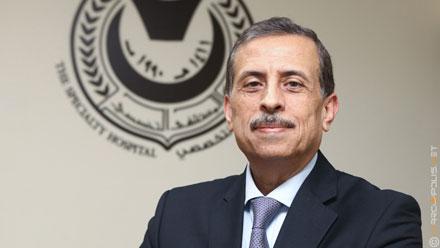You are here
'Number of foreign patients in Jordan to rise after gov't decision to ease visa restrictions'
By Mohammad Ghazal - Mar 10,2018 - Last updated at Mar 10,2018
AMMAN — The number of foreign patients visiting Jordan for treatment is expected to increase following the implementation of a recent government decision to allow visas for "restricted nationality" patients, the Private Hospitals Association (PHA) said on Saturday.
The decision, once it goes into effect, will solve a challenge that the sector is facing amidst competition by several countries, PHA President Fawzi Hammouri told The Jordan Times on Saturday.
In 2015, around 250,000 foreign patients visited Jordan for treatment, but at the end of the year the government restricted the number of nationalities allowed to enter the country and required certain nationalities to obtain a visa prior arrival to the Kingdom, which caused a drop in the number of foreign patients to around 160,000-170,000 in 2016 and 2017, according to Hammouri.
"The recent decision by the government to ease visa restrictions is welcomed and we call for the swift implementation of the decision as until this moment it is not in effect," Hammouri added.
A government official told The Jordan Times on Saturday that the concerned authorities were working on taking the necessary procedures for the decision to go into effect soon.
Last month, the Cabinet decided to allow patients and their chaperones from Sudan, Libya, Yemen, Iraq, Syria, Chad and Ethiopia to obtain a visa for medical purposes.
Under the Cabinet decision, patients and their chaperones can obtain a visa for treatment in the country within two working days except for emergency cases. Men over the age of 50, children under the age of 15, women of all ages and patients from Sudan, Libya, Yemen, Iraq, Syria, Chad and Ethiopia who had entered and left the country legally for medical reasons previously will be exempted from the visa application.
The PHA will launch an intensive campaign to raise awareness about the government's decision in key markets once it goes into effect, especially since large numbers of patients headed to other countries after the restrictions.
"Since the start of 2016, we noticed that a large number of foreign patients who used to come to Jordan started to head to India, Lebanon, Turkey and other places for treatment. This is a challenge that we are now facing and we will engage in intensive efforts, meetings and campaigns using all media outlets to inform residents and authorities in our key markets about the recent commendable decision by the government," Hammouri added.
Topping the list of patients seeking treatment in Jordan last year were the nationals of Saudi Arabia, followed by the rest of the Gulf countries, in addition to several other nationalities.
The sector's contribution to the GDP was at around 3.7 per cent or $1.2 billion in 2015, but it witnessed a decline in 2016 and 2017, according to Hammouri.
Jordan has 67 private hospitals, which account for 65 per cent of the total number of hospitals in the Kingdom, association figures indicate.
Jordan’s medical sector has gained a good reputation for many reasons, including the quality of services provided at the medical facilities, which are equipped with the latest medical technology that exceeds the need of local patients and is able to absorb a large number of patients, said the president.
The specialties most in demand by foreign patients are heart and arterial diseases, obesity and cosmetic surgery, bones and spine surgeries, kidney diseases, and sterility, according to the PHA.
Related Articles
AMMAN — The Private Hospitals Associations (PHA) President Fawzi Hammouri said the Cabinet's decision to allow patients and their chaperones
AMMAN — The number of foreign patients visiting Jordan for treatment has dropped by 40 per cent during 2016 and 2017, according to a sector
AMMAN — Forming a national committee to draft a strategy for health tourism will contribute to improve the situation of the sector and addre















